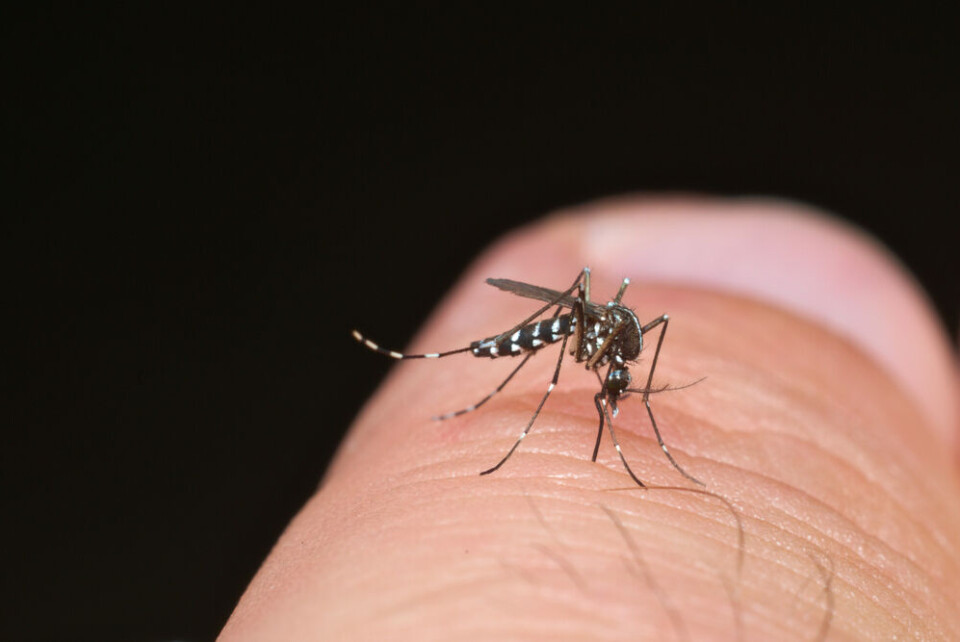-
Map: Are there new Michelin star restaurants near you in France?
The new Michelin Guide France 2025 awarded 78 new stars to restaurants across the country
-
What do Trump and other world leaders say about Le Pen office ban decision?
From ‘left-wing abuse of the legal system’ to ‘the rule of law’, reactions have been fierce
-
Burglaries: the French cities and towns most - and least - affected
New official stats have been released with significant geographical differences
First case of native dengue fever from tiger mosquito in Paris area
This is the first time that a native case has been confirmed so far north

A case of native dengue fever has been confirmed in the Paris region, health authorities have reported.
The ‘native’ (autochtone in French) case was confirmed in Ile-de-France, in Limeil-Brévannes (Val-de-Marne), around 20 km southeast of Paris. The regional health authority l’Agence Régionale de Santé (ARS) confirmed it is the “first native case of dengue in Ile-de-France”.
This is the first time that a native case has been recorded in such a northern region of France.
A ‘native’ case means that the patient contracted the illness on French soil and had not recently travelled to an area typically known for dengue, such as Southeast Asia or the Caribbean.
Dengue fever is spread by tiger mosquitoes, whose number has grown significantly in France since it was first reported in the country in 2004.
Slowly, largely due to rising temperatures and climate change, the insect has spread from the southern Mediterranean regions to most other departments in France.

Map: Ministère de la Santé
In 2022, there were 66 native cases of dengue in France, mainly in Provence-Alpes-Côte-d'Azur and in Occitanie. Health body Santé publique France (SPF) said that this was ‘exceptional’, as it was more than the total number of cases seen from 2010-2021 combined (48).
Read more: Increase in tiger mosquitoes in France leads to more cases of dengue
It has been mandatory for doctors to report cases of dengue since 2006, and each case requires a health investigation.
In September last year, health authorities warned of the likelihood of increased cases of the illness - along with Zika and chikungunya, which are also passed on by tiger mosquitoes - due to the spread of the mosquitoes.
Read more: France warns of increased risk of dengue fever from tiger mosquitoes
Dengue causes a high fever, a headache, joint pain and digestive problems. It can also cause rashes, and in very rare severe cases, can cause haemorrhage. It is typically not fatal; only 0.01% of patients die.
Outside of mainland France, the French overseas territories have been experiencing varying levels of dengue epidemic since mid-August.
How can you tell a tiger mosquito from a ‘normal’ mosquito?
Despite their ‘big cat’ name, they are still small (less than 0.5cm in length). Yet, they can be identified by their distinctive black and white ‘striped’ markings, which give them their name.
Unlike ‘normal’ mosquitoes, they are silent and do not make the same buzzing sound.
However, the type of mosquito and the number can vary considerably from region to region, with around 70 different species present in France. Only some of them bite, and most do not carry diseases that affect humans.
How to avoid being bitten
Health authority Anses suggests the following tips to help avoid the insect:
- Regularly empty or remove any stagnant water, including the cups under flower pots, vases, etc., or fill them with sand in order to maintain humidity without stagnant water
- Store buckets, gardening equipment, toys, and other containers away from the rain
- Cover water collection containers with mosquito netting or fabric
- Clean gutters to allow proper drainage
SPF says that people should consult their doctor as soon as possible if they notice any symptoms after receiving mosquito bites, or if returning to France from an at-risk country.
Related articles
Alarm over massive rise of mosquito-spread diseases caught in France
Tiger mosquitoes: How you can help stop their spread in France
























